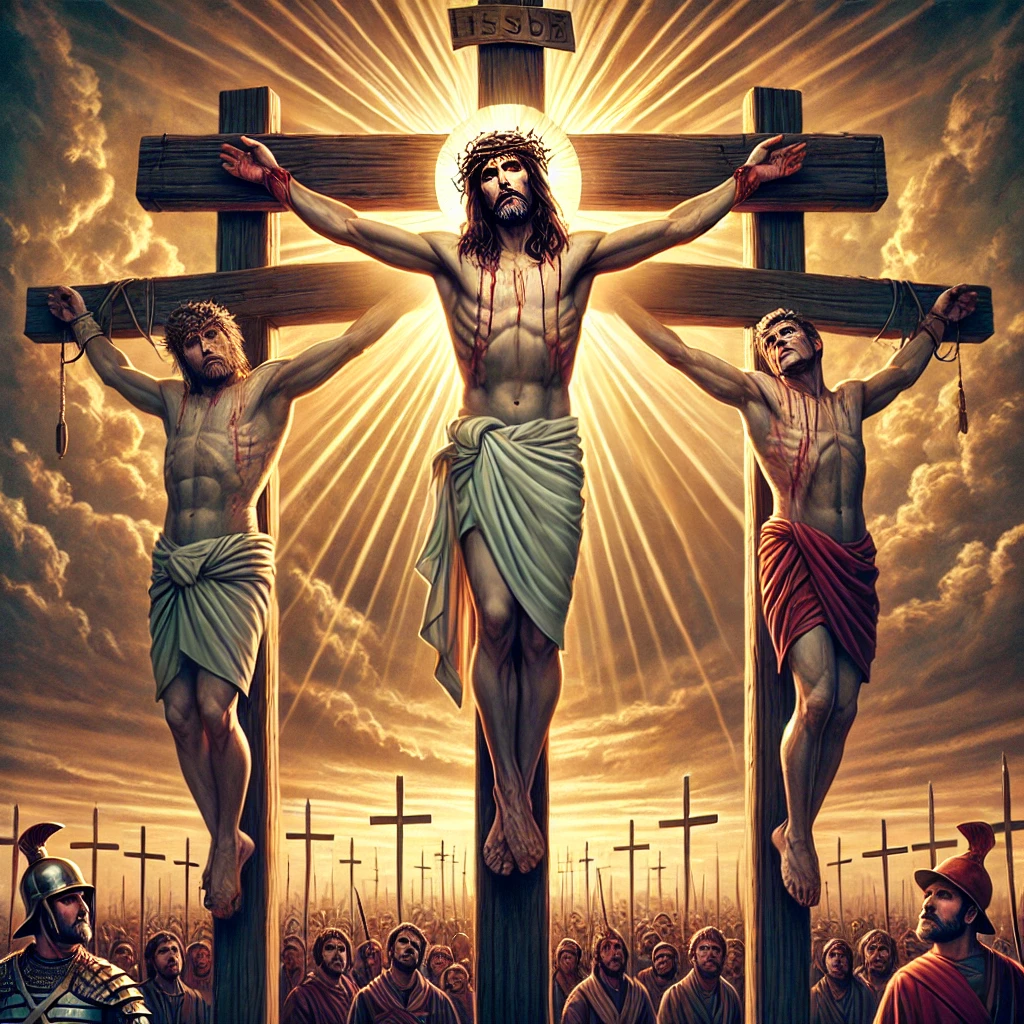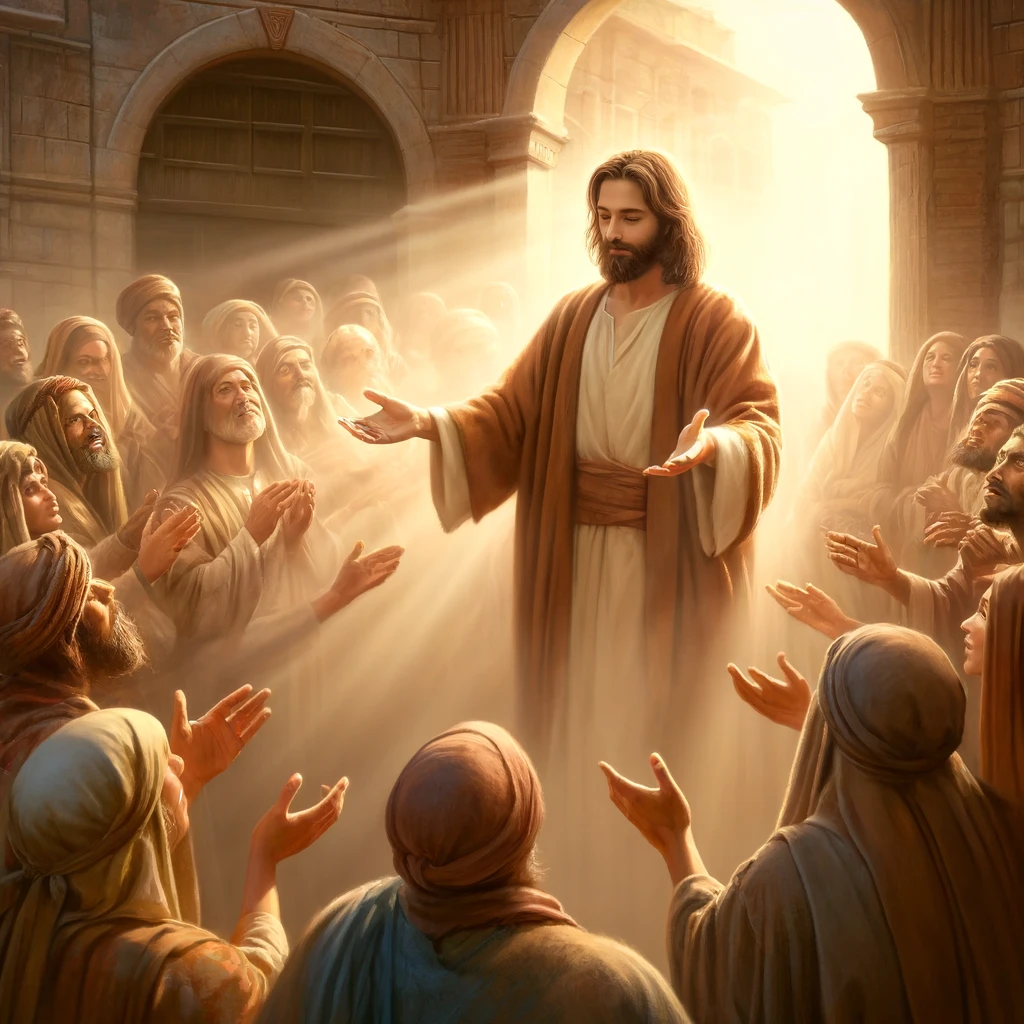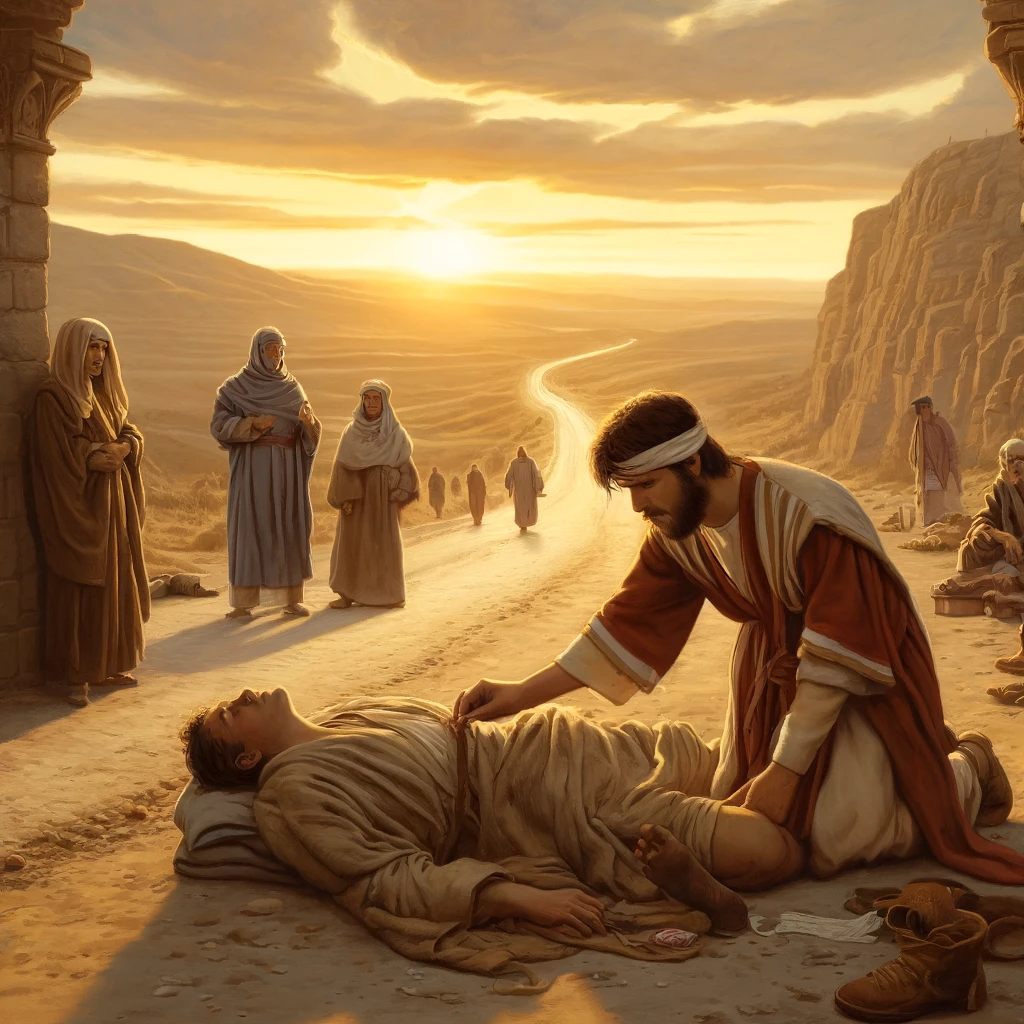The crucifixion of Jesus Christ stands as the cornerstone of Christian faith, a moment of profound significance that carries both historical and theological weight. But have you ever paused to ask, why was Jesus crucified? Was it simply a tragic miscarriage of justice, or was there a divine purpose behind this ultimate sacrifice? Understanding the reason for Jesus’ crucifixion helps us grasp the depth of God’s love and His plan for redemption. In this article, we’ll explore the historical context, theological reasons, and the personal meaning of the cross to uncover its lasting impact on our lives today.
The Historical Context of Crucifixion
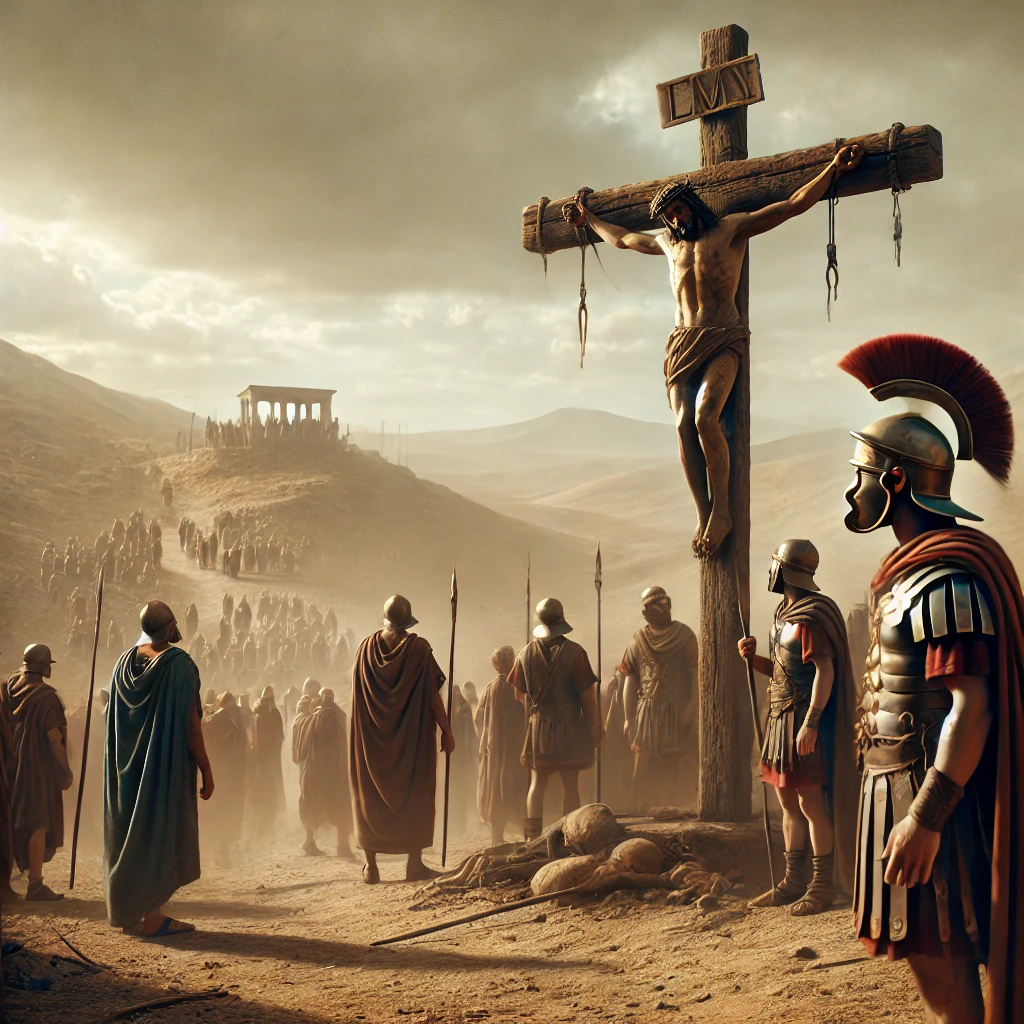
The Practice of Crucifixion in Roman Times
Crucifixion was a brutal method of execution used by the Roman Empire to punish criminals, slaves, and political rebels. Reserved for the most severe offenses, it was designed to inflict maximum pain and humiliation. The condemned person was often scourged before being nailed or tied to a wooden cross, left to endure hours or even days of agony before death. This practice not only demonstrated Rome’s power but also served as a public deterrent, instilling fear in onlookers.
Why Was Jesus Crucified According to History?
From a historical perspective, Jesus’ crucifixion was the result of political and religious tensions. The Jewish religious leaders accused Him of blasphemy for claiming to be the Son of God, a threat to their authority. Meanwhile, Roman officials viewed Jesus as a potential political insurgent who could incite rebellion. To maintain order, Pontius Pilate, the Roman governor, ultimately sentenced Jesus to death by crucifixion, despite acknowledging His innocence.
The Crucifixion Narrative in the Gospels
The four Gospels—Matthew, Mark, Luke, and John—provide vivid accounts of Jesus’ crucifixion. They detail the events leading up to His death, including the betrayal by Judas, the trials before the Sanhedrin and Pilate, and the journey to Golgotha. Each Gospel emphasizes the fulfillment of Old Testament prophecies, underscoring that Jesus’ crucifixion was not an accident but a divine plan for the salvation of humanity.
Theological Reasons for Jesus’ Crucifixion
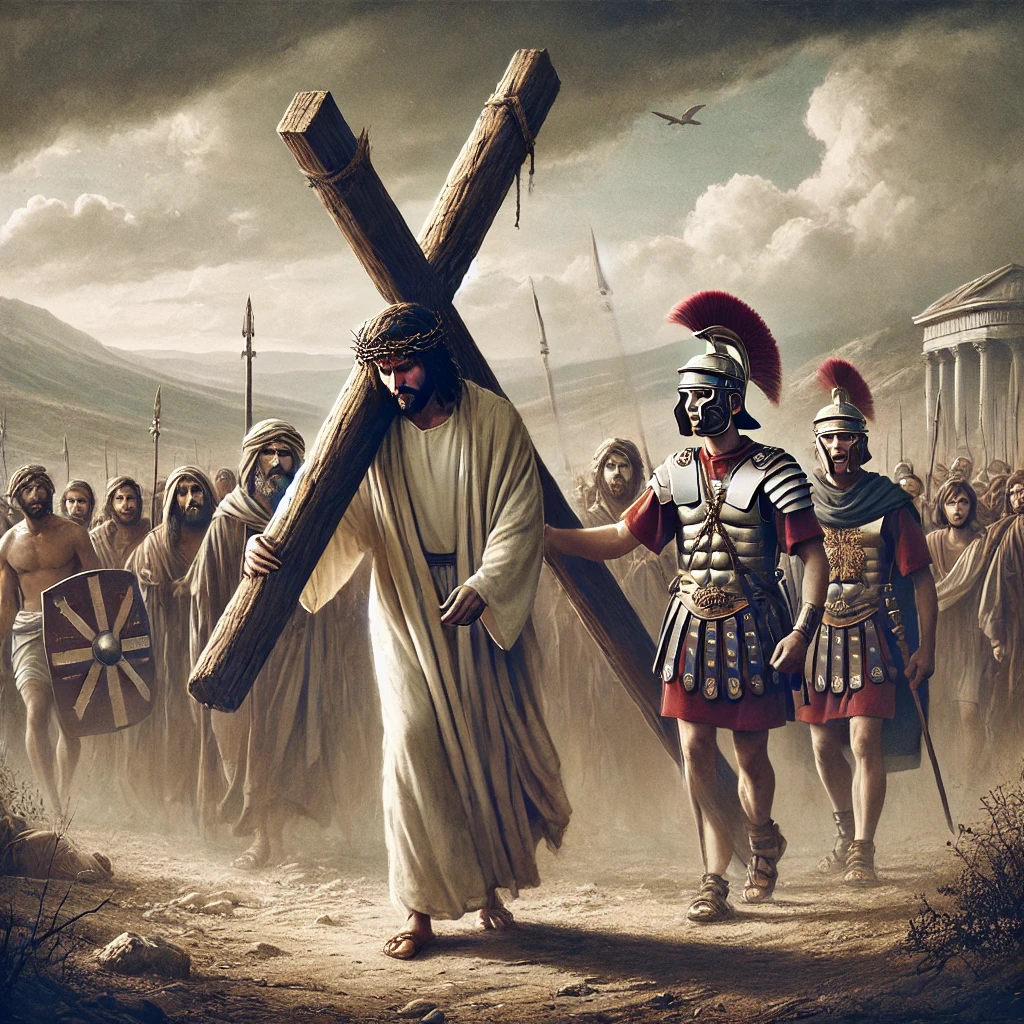
The Crucifixion as Atonement for Sin
Theologically, Jesus’ crucifixion was an act of atonement, a sacrifice to reconcile humanity with God. In the Old Testament, atonement was achieved through the blood of sacrificial animals, symbolizing the payment for sin. However, these sacrifices were temporary. Jesus, as the Lamb of God, offered Himself as the ultimate and perfect sacrifice, paying the penalty for sin once and for all. As Paul writes in Romans 5:8, “But God demonstrates His own love for us in this: While we were still sinners, Christ died for us.”
Understanding Substitutionary Atonement in Christianity
Substitutionary atonement is a central doctrine of Christianity. It means that Jesus took our place on the cross, bearing the punishment we deserved for our sins. This profound act of love and justice satisfies God’s holiness while extending grace to humanity. Isaiah 53:5 prophetically captures this truth: “But He was pierced for our transgressions, He was crushed for our iniquities; the punishment that brought us peace was on Him, and by His wounds we are healed.” Through the cross, we are not only forgiven but also set free from the power of sin and death.
How the Crucifixion Fulfilled Old Testament Prophecies
Jesus’ crucifixion was not a random event; it was foretold in the Old Testament centuries before it happened. Prophecies like Isaiah 53, Psalm 22, and Zechariah 12:10 vividly describe the suffering and death of the Messiah. By fulfilling these prophecies, Jesus confirmed His identity as the promised Savior. His death on the cross was the culmination of God’s redemptive plan, providing a way for humanity to be restored to a right relationship with Him.
God’s Love Revealed Through the Cross
The crucifixion is the ultimate demonstration of God’s love. In John 3:16, we read, “For God so loved the world that He gave His one and only Son, that whoever believes in Him shall not perish but have eternal life.” Through the cross, God showed that His love is sacrificial, unconditional, and all-encompassing. It’s a love that invites everyone, regardless of their past, to experience forgiveness and eternal life.
The Significance of the Cross in Christian Faith

The Cross as a Symbol of Redemption and Grace
For Christians, the cross is more than a historical artifact; it’s a powerful symbol of redemption and grace. Through Jesus’ sacrifice, believers are redeemed from the bondage of sin and adopted into God’s family. The cross serves as a reminder that salvation is a gift of grace, not something earned through works. As Ephesians 2:8-9 states, “For it is by grace you have been saved, through faith—and this is not from yourselves, it is the gift of God—not by works, so that no one can boast.”
Victory Over Sin and Death Through the Cross
The crucifixion of Jesus is a declaration of victory over sin and death. By His death, Jesus paid the penalty for sin, and through His resurrection, He conquered the grave. This victory assures believers that death is not the end but the gateway to eternal life. As Paul triumphantly declares in 1 Corinthians 15:55-57, “Where, O death, is your victory? Where, O death, is your sting? The sting of death is sin, and the power of sin is the law. But thanks be to God! He gives us the victory through our Lord Jesus Christ.”
The Power of Forgiveness in the Crucifixion
The cross represents the power of forgiveness, both from God and toward others. Jesus’ prayer on the cross, “Father, forgive them, for they do not know what they are doing” (Luke 23:34), exemplifies the depth of His mercy. For Christians, the crucifixion serves as a call to forgive others just as we have been forgiven, fostering reconciliation and healing in relationships.
The Personal Meaning of the Cross for Christians

Experiencing God’s Love Through the Cross
For Christians, the cross is a deeply personal reminder of God’s immense love. It reassures us that no matter how far we may stray, His love is always available to draw us back. Romans 8:38-39 beautifully declares that “neither death nor life, neither angels nor demons, neither the present nor the future, nor any powers… will be able to separate us from the love of God that is in Christ Jesus our Lord.” Reflecting on the cross allows believers to experience the transformative power of God’s love in their daily lives.
Living in the Light of Christ’s Sacrifice
The cross not only assures us of salvation but also calls us to live in response to Jesus’ sacrifice. This means embracing a life of humility, gratitude, and obedience. Galatians 2:20 says, “I have been crucified with Christ and I no longer live, but Christ lives in me.” Living in the light of the cross means allowing Christ’s love to shine through our actions, words, and choices, so others can see Him reflected in us.
What It Means to Carry Your Own Cross
Jesus said in Luke 9:23, “Whoever wants to be my disciple must deny themselves and take up their cross daily and follow me.” Carrying your own cross means surrendering your desires and placing your trust in God’s plan. It’s a call to die to self, face challenges with faith, and remain steadfast in your walk with Christ. The cross is not merely a symbol of suffering but one of hope and ultimate victory.
How the Crucifixion Shapes Christian Worship and Practice

The Crucifixion and Its Role in Communion
The Lord’s Supper, or Communion, is a sacred practice that commemorates Jesus’ sacrifice on the cross. As believers partake in the bread and cup, they reflect on Christ’s body broken and His blood shed for the forgiveness of sins. In 1 Corinthians 11:26, Paul reminds us, “For whenever you eat this bread and drink this cup, you proclaim the Lord’s death until He comes.” Through Communion, Christians regularly remember and give thanks for the crucifixion, deepening their connection with Christ.
How the Cross Influences Christian Art and Symbols
The cross has inspired countless works of Christian art, hymns, and symbols throughout history. From paintings of the crucifixion to the design of church architecture, the cross serves as a visual representation of God’s love and sacrifice. Symbols like the crucifix, the empty cross, and even crosses in jewelry or tattoos remind Christians of their faith and the central role of Jesus’ sacrifice.
Commemorating Good Friday and Easter
Good Friday and Easter are pivotal moments in the Christian calendar, marking Jesus’ crucifixion and resurrection. Good Friday is a somber day of reflection on His suffering and death, while Easter Sunday celebrates the triumph of His resurrection. Together, these events form the foundation of Christian worship, offering hope and renewal to believers as they remember the price of their salvation.
Conclusion – Embracing the Cross: A Call to Live in God’s Love and Grace
Reflecting on the Love Behind Jesus’ Sacrifice
The crucifixion of Jesus Christ is more than an event in history—it’s a profound expression of God’s love for humanity. As we reflect on the cross, we see a Savior who willingly endured suffering and death so that we could experience forgiveness, redemption, and eternal life. This love calls us not only to believe but also to live transformed lives, rooted in grace and truth.
How the Cross Calls Us to Live Differently
The cross is a call to action. It invites us to live lives of gratitude, forgiveness, and unwavering faith. As Paul writes in Philippians 2:8, “He humbled himself by becoming obedient to death—even death on a cross!” In response, we are called to embrace humility, love our neighbors, and walk in obedience to God’s will. Let the cross shape your daily choices and lead you closer to Christ.
FAQ: Why Was Jesus Crucified?
Why Did Jesus Have to Die on the Cross?
Jesus had to die on the cross to fulfill God’s plan of redemption. His death paid the penalty for sin, satisfying God’s justice while extending mercy to all who believe in Him. Through His crucifixion, Jesus bridged the gap between a holy God and sinful humanity, making eternal life possible for those who place their faith in Him.
Couldn’t God Have Saved Us Without Jesus’ Crucifixion?
God’s plan for salvation required a perfect sacrifice to atone for sin. While God is all-powerful, His justice demanded that sin be dealt with. Jesus, fully God and fully man, was the only one who could meet this requirement. The crucifixion demonstrates both God’s justice and His immense love for us.
What Is Substitutionary Atonement?
Substitutionary atonement is the belief that Jesus took our place on the cross, bearing the punishment we deserved. This doctrine is central to Christian faith, emphasizing that salvation is a gift of grace. As Isaiah 53:5 states, “He was pierced for our transgressions, He was crushed for our iniquities.”
How Does the Crucifixion Affect My Daily Life?
The crucifixion reminds us of the magnitude of God’s love and the cost of our salvation. It calls us to live lives of gratitude, prioritize forgiveness, and share the message of the gospel with others. Each day is an opportunity to reflect on Christ’s sacrifice and let it guide our decisions and relationships.
How Is the Crucifixion Remembered in Christian Worship?
The crucifixion is central to Christian worship. Through practices like Communion, hymns, and the observance of Good Friday, believers remember and honor Jesus’ sacrifice. These acts of worship serve as reminders of God’s love and deepen our connection with Him.
Related Article: Why Was Jesus Baptized?
Have you ever wondered why Jesus, who was without sin, chose to be baptized by John the Baptist? Understanding Jesus’ baptism reveals its profound spiritual significance and how it marked the beginning of His public ministry. It serves as a powerful example of obedience and humility, pointing to His mission to fulfill all righteousness. Dive deeper into this topic in our article, Why Was Jesus Baptized? Discover Its Significance, where we explore the meaning behind His baptism and what it teaches us about our own faith journey.
Visit Christianbook.com for all your Christian Books and Gifts

